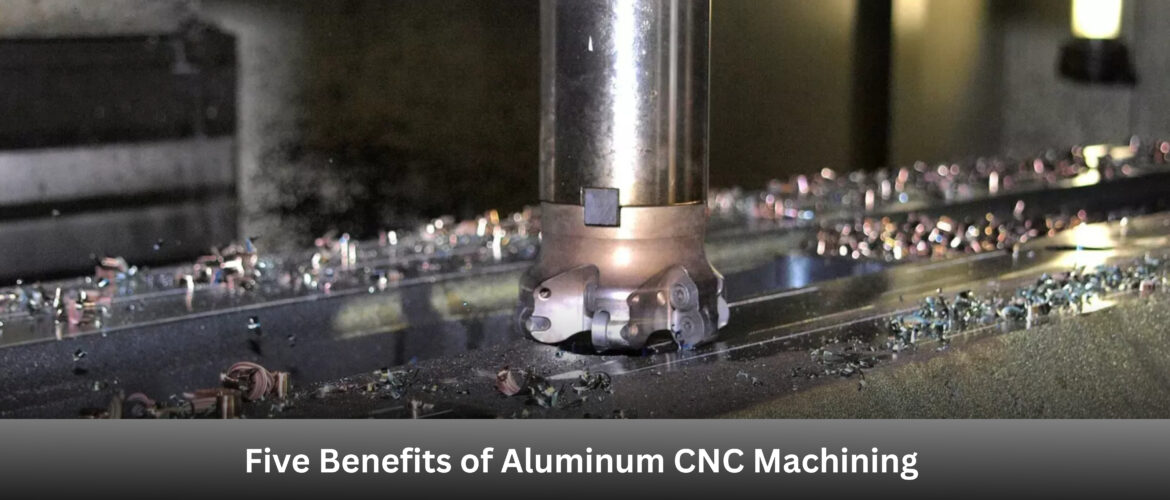Aluminum in pure form and in a variety of alloys can be found in almost every industrial, mining, and manufacturing space imaginable, and there are many good reasons to seek aluminum parts from a machine shop in Nashville. In many cases, custom machining is easier, and aluminum has several qualities that make it useful. When alloyed with various metals it becomes even more useful to machining services whose customers need a metal with specific characteristics for a particular application. The vast array of aluminum alloys available means that lots of CNC machining jobs can be completed using these metals versus heavier and/or costlier alternatives like stainless steel.
Selecting a Metal for CNC Machining
Selecting the right metal or alloy for a job can be easy, as when the engineer recommends stainless steel or Duralumin or 6061-T6 but when there are no professional recommendations or guidelines an engineer or designer needs to weigh cost against other variables that may be important to a project. Extra corrosion resistance may be critical in one case, toughness in another, aesthetics in a third. In most instances, you will need to consider several factors in addition to cost. Even if you are determined to use steel, or aluminum, the logic is similar. You need to look at the finished product’s intended use where in one case strength-to-weight ratio is a priority and in another corrosion resistance.
Advantages of Aluminum and Alloys
Steel is justifiably popular in commercial and industrial settings, but this doesn’t mean aluminum is inferior. In fact, we can see why this metal is so popular in custom machining after reviewing some of the advantages it offers versus steel, stainless steel, and steel alloys:
Flexibility with Alloys
The main advantage of aluminum is the wide variety of available alloys. Plain aluminum has its uses, but alloys made with silicon, magnesium, manganese, and other metals create a metal with a wide range of characteristics to suit various needs. An alloy with high corrosion resistance is available for some applications, for example.
Quick to Machine
This metal is easier to bend, cut, and drill than steel or alloys but can also be worked into complex shapes without losing too much strength. Because these elements are easy to work with in custom machining, production moves along faster, which can save money.
Aesthetic Appeal
The shiny metallic look of unfinished aluminum is nice to have for many applications where the parts are exposed. Aluminum is also easy to anodize (electrochemically and color for added durability and visual appeal. Anodized aluminum parts can be made to fit about any color scheme in that way, while also becoming more corrosion resistant.
Corrosion Resistance
Aluminum and the alloys tend to be very resistant to corrosion, which means they can maintain their appearance longer, and more importantly, their resistance to damage from warping, impacts, and chemical reactions. Other metals or alloys that offer similar corrosion resistance may be heavier or more expensive, or both.
Strength-to-Weight Ratio
Aluminum is weaker than steel but much lighter. Sometimes a weaker metal with a better strength-to-weight ratio is the right choice because weight is very important. This is one of the reasons that aluminum shows up so often in aircraft and high-performance cars. Steel might offer more strength at a given thickness, but at much greater weight.
If you aren’t sure what option makes the most sense in your custom project, contact the CNC machining pros at Hamilton Machine to advise you and turn your design into the finished part.
Understanding Alloys
Companies that sell sheets, rods, or bricks of metals and alloys have created a dizzying variety of aluminum alloys designed to deliver the right mix of characteristics for different uses. Adding copper, tin, manganese, magnesium, or silicon in small amounts will change the base metals corrosion resistance, tensile strength, and thermal conductivity. As with all alloys, these can be characterized by their:
- Ductility
- Density
- Tensile strength
- Weldability
- Corrosion resistance
These metals can also be heat treated, strain hardened, or annealed to alter their characteristic, which makes for a wide variety of choices that a CNC machining firm has.
The metal or alloys may be delivered in rods, blocks, sheets, or extrusions that can be worked to suit a particular need by a machine shop in Nashville, or near your workplace.
Other metals may be found in some specialized alloys, while others will have two or more metals added in tiny amounts. 2195 aluminum, for example, uses copper, magnesium, manganese, silver, and zirconium. 6063 aluminum uses a trace of silicon and magnesium. 1100 aluminum is 99% pure with 1% copper added to it.
A Versatile Alternative to Steel and Steel Alloys
Machine services can turn this lightweight and popular metal into a wide range of parts for engines, pumps, buildings, frames, and more. Alloys of this versatile metal, as well as the pure form, have a wide variety of uses so they can be a great choice for parts to be made with CNC Machining. If you need custom machining and work in the area, contact Hamilton Machine, a Nashville machine shop to discuss your fabrication or design needs.


